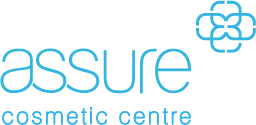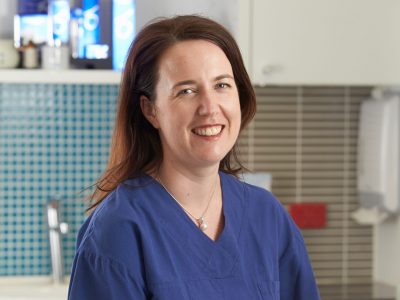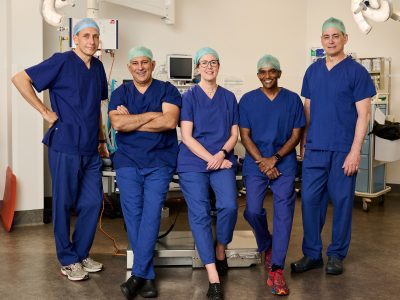Breast revision in Perth is a cosmetic procedure to remove a breast implant or breast prosthesis. Known as ‘explantation’, it is used primarily to deal with breast implant complications.
It is possible, in some cases, to combine the removal of breast implants with the insertion of new breast implants.
Breast Implant Removal in Perth
Surgery for breast revision in Perth may be an option for you if:
- You have capsular contraction or hardening of a breast implant due to scar tissue compressing the implant
- You have a ruptured breast implant
- You are no longer satisfied with your breast size or shape, especially following pregnancy or changes in weight
- You have decided you no longer wish to have your breast implants.
Book a Consultation
If you are considering having your breast implants removed or replaced, the first step is to book a consultation with one of our Specialist Plastic Surgeons. They will discuss your circumstances, expectations and any concerns you may have. Pricing and pre- and post-operative care will also be discussed.
At Assure Cosmetic Centre, you’re in the care of a highly skilled medical team. Through your journey with us you will feel informed and comfortable and able to make the decision that is best for you.
Frequently Asked Questions
Breast Revision
If you have recently undergone a breast augmentation by another accredited plastic surgeon within the last 6 months, either in Australia or abroad, and you are dissatisfied with the results, we advise you to first seek help from the original surgeon. They possess valuable knowledge about your specific procedure, the implants used, and the infection control measures taken. In case you encounter complications, infections, or wound issues, it’s essential to get in touch with your initial surgeon. If contacting them proves difficult, please visit your General Practitioner (GP) or the nearest hospital emergency department for assistance.
However, if you have had a breast augmentation performed in Australia or overseas by another accredited plastic surgeon or ‘cosmetic doctor’ over six months ago, you are unhappy with the results and you’ve either been unable to reach an agreed path forward with your original surgeon/doctor or you do not feel comfortable seeking further treatment from them, then we recommend the following steps:
- Visit Your GP: Request a referral to a Specialist Plastic Surgeon. The referral can be general and does not need to be directed to a specific practitioner, allowing you the freedom to choose who you wish to see.
- Contact Our Centre: Reach out to us to request our email address. We will ask for your referral, details of your previous surgical procedure(s), and the name of the practitioner who performed the surgery. We may also request photos of your results.
- Review Process: Our team will review the referral and the information provided to determine if a consultation on breast revision surgery would be appropriate for you at our centre.
Irrespective of whether you are opting for implant replacement or removal, the primary objective of your surgery is to address any current issues and provide you with breasts that are a size that is in better proportion with your physique. Your Specialist Plastic Surgeon is the most qualified person to determine whether your expectations are achievable.
The surgical technique used by your Specialist Plastic Surgeon will depend on whether you are undergoing breast implant replacement or removal. If the reason for removal or replacement is due to rupture or silicone leakage, you might need to undergo an ultrasound or mammogram before the surgery. Your GP can provide you with a radiology request form to arrange this imaging before your consultation with the surgeon.
During the procedure, incisions are typically made along the scars from your previous surgery. The existing implant is then removed, and the internal structure of your breast, known as the breast pocket, is carefully evaluated. In cases where the previous implant was inserted through incisions in the armpit, the surgeon will usually remove them through an inframammary incision, which is preferred.
If the implant removal or replacement is due to capsular contracture, a capsulectomy will be performed concurrently to remove the scar tissue capsule surrounding the implant.
For those undergoing implant replacement, the new implant will usually be positioned in the same location as the previous one – behind the breast tissue, either in front of or behind the pectoral muscle, depending on the reason for replacement. Your surgeon may also reshape the breast pocket if necessary. We use premium silicone implants from Mentor (Johnson & Johnson), a leading breast implant manufacturer, and we do not use Poly Implant Prothèse (PIP) implants. Additionally, your new breast implants will be registered with the Australian Breast Device Registry, a Government initiative aimed at monitoring the safety and quality of breast implant procedures at no cost to the patient.
In cases where a straightforward implant removal is conducted, you may require a mastopexy to lift your breasts. Implants can stretch the skin and breast tissue over time, and after removal, patients may experience breast ptosis (sagging of the breast) and downward-pointing nipples and areolas.
The most appropriate approach for your situation will be determined by your surgeon. It’s important to understand that both breasts, nipples, and areolas are never perfectly symmetrical in size and shape.
The procedure takes place in a fully-accredited hospital in Perth, under general anaesthesia. Depending on your general health and the extent of the procedure, it can be performed as a day procedure or with a short hospital stay. Your surgeon will provide you with details about your recovery process, which you should discuss thoroughly. Generally you will need to attend a post-operative consultation approximately 7 days after breast revision surgery, and again 4 weeks later.
All plastic, cosmetic and reconstructive surgical procedures come with risks and potential complications. To ensure successful surgery, it is crucial to understand and minimise these risks. Whilst all measures are taken to mitigate risks, some risks are unavoidable.
All information on this page is general in nature – your Specialist Plastic Surgeon will discuss the specific risks and complications pertinent to your individual surgical procedure during your consultation. General risks for surgery are listed here.
Specific risks related to breast revision surgery include, but are not limited to:
- Fluid accumulation: After the surgery, there is a possibility of fluid accumulating around the surgical site(s). This condition, known as seroma, may require additional procedures to drain the fluid. To prevent any fluid or blood accumulation, thin tubes called a drains may be temporarily placed under the skin while you’re in hospital.
- Fat necrosis: This is a rare complication that can occur when fatty tissue dies. It can cause hard lumps under the skin, but it is usually not a serious problem.
- Changes in breast and nipple sensation: Breast revision may lead to temporary or permanent changes in breast and nipple sensation. Some individuals may experience increased sensitivity, while others may notice reduced sensation.
- Numbness: Temporary or permanent areas of numbness in the breasts and surrounding areas can occur as a result of nerve damage during the surgery. It is important to discuss this possibility with your surgeon prior to the procedure.
- Breast asymmetry: Breast revision can sometimes result in unevenness or asymmetry of the breasts. This can occur due to variations in healing, tissue response, or implant placement.
- Breastfeeding difficulties: Breast revision may potentially affect breastfeeding, leading to reduced milk supply. It is important to discuss this concern with your surgeon before undergoing the procedure, especially if planning to have children in the future.
In addition to the above, these risks also relate to having new implants inserted:
- Skin wrinkling: In some cases, wrinkling of the skin over the breast implant may occur. This can be more common in individuals with thin skin or those who have chosen larger implants.
- Calcium deposits: In some cases, calcium deposits may develop in the scar capsule around the breast implant. These deposits are usually harmless but may require monitoring or treatment.
- Granulomas: Granulomas are lumps that can form in the local lymph node tissue due to leaking silicone. Although rare, they can occur and may require medical attention.
- Capsular contracture: Capsular contracture is a complication where scar tissue forms around the implant, causing it to become firm and lose its shape and softness. This can result in discomfort and may require additional surgery to correct.
- Implant-related issues: There are various implant-related risks, including inappropriate implant size, implant rupture, and deflation. These issues may necessitate revision surgery to replace or remove the implant.
- Breast cancer screening challenges: Breast implants may interfere with the effectiveness of mammograms in detecting breast tissue abnormalities, including tumors. It is crucial to inform healthcare providers about the presence of implants to ensure proper screening techniques are used.
- Implant movement: In some cases, breast implants may shift from their original position over time. This can result in asymmetry or discomfort and may require corrective surgery.
- Additional surgeries: In the event of complications or unsatisfactory outcomes, further surgeries may be necessary to address any issues. Breast implants are not lifetime devices and may need to be replaced after approximately 10 to 15 years.
In recent times, there have been claims made regarding a possible link between implants and the development of connective tissue diseases, such as rheumatoid arthritis, lupus erythematosus, scleroderma, and other autoimmune conditions. While certain studies have shown a slight increase in risk, numerous medical investigations have not established a conclusive connection between implants and these specific health conditions. It is important to acknowledge that a certain percentage of women in the general population may develop these diseases irrespective of having implants. Therefore, while there is a possibility of developing connective tissue and autoimmune diseases, it should be regarded as a remote likelihood.
In very rare instances, there have been cases of Breast Implant Associated-Anaplastic Large Cell Lymphoma (BIA-ALCL). For further information on this, please click here.
Occasionally, women with implants have reported experiencing general symptoms such as joint pain, body aches, swollen lymph nodes, persistent fatigue, increased susceptibility to common illnesses, hair loss, skin rashes, headaches, memory problems, nausea, muscle weakness, irritable bowel syndrome, and intermittent fever. Although there have been suggestions of a correlation between these symptoms and autoimmune disorders, it has not been definitively proven.
While scars are an inevitable result of surgical procedures, your surgeon will prioritise reducing their visibility and making sure they are inconspicuous. In the case of breast revision, the scars are generally small, measuring only a few centimeters, and strategically positioned to minimise their noticeability. We recognise that certain patients may have a predisposition to develop keloid or hypertrophic scars, so we urge you to inform your surgeon if you are aware of this tendency in yourself. Your surgeon will carefully consider this information to enhance your outcomes and minimise the likelihood of visible scarring.
Unwanted side effects from breast revision surgery are uncommon. If you are having your breast implants removed due to leakage, you may continue to experience some health issues. If you are having breast implants replaced, possible side effects might include implant rupture, one implant becoming fixed in a slightly higher or lower position than the other, or a capsule of scar tissue forming around the implant. With saline-filled implants, it is possible (although uncommon) that the implant may deflate and require replacement. At Assure, we only use safe, silicone gel implants. Our implant supplier is one of the world’s leading implant manufacturers, Mentor (Johnson & Johnson), credited with very high safety and quality standards.
Please note that the recovery process after breast revision surgery may vary for each individual. While most patients can expect to resume their normal routine within 2-3 weeks, it is important to consider certain factors and follow personalised advice from your surgeon. It is recommended to wait a little longer before engaging in strenuous exercise to ensure optimal healing.
The timing of returning to work or regular activities should be determined based on your specific circumstances, the complexity of your surgery and the guidance provided by your Specialist Plastic Surgeon. To support the healing process and minimise swelling, you will be required to wear post-surgical compression garments for approximately six weeks.
It is crucial to understand that every patient’s recovery requires sufficient time, support, and appropriate postoperative care. Healing abilities and pain tolerance may vary among individuals, leading to differences in the duration of recovery and the ability to participate in various activities. For accurate information about your recovery and expectations, we strongly advise consulting your Specialist Plastic Surgeon who can provide personalised guidance.
Our Specialist Plastic Surgeon have never used, and would not use Poly Implant Prothèse (PIP) implants. However, the removal of PIP implants, with or without replacement implants, is an increasingly common procedure in light of the PIP safety issue.
Assure Cosmetic Centre uses only the highest quality breast implants that are guaranteed by the manufacturer for life. The chance of a problem occurring with the breast implants down the track is very unlikely. The high quality manufacturers we use provide these guarantees with money-back assurance.
If you have been found to have Poly Implant Prothèse (PIP) implants from previous breast surgery, it is important to request a consultation with us as soon as possible about having them removed. While our Specialist Plastic Surgeon have never used, and would not use PIP breast implants, they are highly experienced in breast revision surgery to remove them.
An initial consultation with your Specialist Plastic Surgeon will cost approximately $300-$360, which is payable in full at the time of booking your consultation. Your consultation will take approximately 30-60 minutes. If a Medicare item applies to your potential procedure then you will be entitled to a rebate from Medicare of approximately $80, providing you have a written referral from your GP or specialist. GP referrals are valid for 12 months and specialist referrals for 3 months.
Your Specialist Plastic Surgeon will provide an indication of the likely costs, such as your surgeon’s fee, anaesthetist’s fees and hospital and theatre fees. Your surgeon’s fee includes all post-operative care and nurse dressings. An indicative range of your surgeon’s fee is $6,000 to $12,000 excluding GST however, pricing will vary from case to case and can be higher depending on whether you are having a breast revision with or without replacement of implants, and whether you require a breast lift as part of your procedure. Anaesthetist, hospital and theatre fees are additional.
There may be Medicare and private health insurance rebates available for breast revision surgery in Perth depending on strict Medicare eligibility criteria. Your surgeon can provide you with more information, but you would then need to talk to your private health insurer to determine exactly how much cover they will provide and confirm what your final out-of-pocket costs will be.



